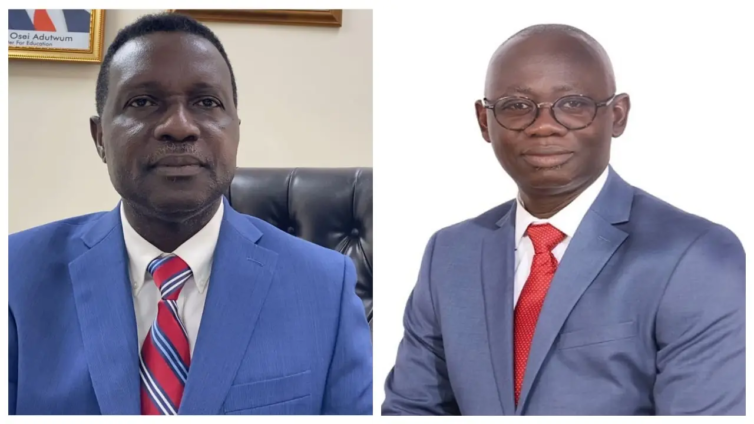When the Ministry of Education set up a resolution centre at the Bediako Conference Room of the GNAT Hall in Accra, it was meant to address anomalies and mistakes in the placement of students into senior high schools.
Investigations by The Fourth Estate, however, revealed that the GNAT Hall had been turned into a market where placements into top senior high schools could be bought like commodities. Top officials linked to the placement executed their trade through a network of intermediaries, mostly security guards and cleaners at the GNAT Hall.
It was easy to mistake them for scammers blowing hot air about their connections, but, as our investigation revealed, a cleaner who took your money at the GNAT Hall was capable of placing a student you presented in a school which only two top officials in Ghana’s educational system–the Minister of Education and the Director-General of the Ghana Education Service (GES)–had the password to effect such placements.
Parents who paid and got their wards placed in the country’s top and well-resourced schools were unwilling to cooperate with us on this story, so we went undercover to ascertain the veracity of the allegations.
At the GNAT Hall, we found a parent who wanted her ward’s school changed from Apam Senior High School, a category B school to Mfantsiman Senior High School, a category A school. She, however, had no money to pay the amount the placement officials, through their intermediaries, were demanding.

We spotted a neatly dressed security man who was about to deliver a brown envelope to a man and his daughter outside the GNAT Hall. We approached him and asked if he could help us with placement into a top secondary school.
“I can help you, but it’s money. You have to pay,” he said.
We agreed and asked to be introduced to the individuals involved.
This security man, who we later got to know as Isaac Adorkor, led us to a seat near one of the conference halls at the GNAT Hall.
After about forty-five minutes of waiting, a man in a bright-blue shirt with “UAS Specialist Cleaning Services” embossed on the left breast appeared. We later got to know his name as Eric Aggrey, a janitor at the GNAT Hall.
He made a call after a short conversation with us and informed a supposed Ghana Education Service (GES) staff, whose phone number he saved as Biggie, of our need for a placement.
When the call ended, Eric told us Biggie’s charges were too high, but he had another person who could be trusted. He later called one Rachel, who he said could help.
“Wesley Girls is GH₵10,000 but Mfantsiman is GH₵ 7,000,” he told.
He assured us that he could lead us to Rachel’s house should she renege on her promise to secure the placement we needed.
Eric said aside from being a staffer at the Ministry of Education, Rachel worked with the Education Minister’s secretary. Rachel also made this claim, but when we pushed for evidence, she could not prove it.
Eric charged GH₵ 7,000 to change the placement of our student from Apam Senior High to Mfantsiman Girls Senior High School.
When the money was ready, he said Rachel had changed her mind. Rachel demanded GH₵8,500 and ended the call when we asked for a reduction.
After several pleas, Eric, Rachel’s middleman, eventually settled on GH₵ 7,500 to change placement from Apam Senior High School to Mfantsiman Girls Senior High School.
When the placement was delayed and we called Eric for answers, he introduced us to a man he said was called Nathaniel to reassure us that the placement would be effected.
Our investigations would later reveal his true identity to be Simon Bessa Aggrey, Eric’s younger brother, a deacon of the Apostolic church, Kwashieman, last stop branch.
Simon revealed that the student had already enrolled in Apam Senior High School, and it would be difficult for the placement to be changed.
Due to the difficulty we encountered in changing the placement of the student who had already enrolled, we presented another student who wanted her placement changed from Accra Wesley Girls’ High School in Kaneshie, Accra, to Aggrey Memorial AME Zion Senior High School in Cape Coast.
Her parents wanted her placed in a school in Cape Coast, closer to Takoradi where the family lived. She had not selected Aggrey Memorial as part of the six schools during the school selection process. But when we contacted Eric, he assured us that he could make the change.
He charged an extra GH₵ 1,000 to top up the GH₵ 7,500 he had demanded to change the placement to Mfantsiman Girls. The reporter agreed to pay only after the change was made.
In less than 24 hours, Eric made the change.
At 9:16 am on Tuesday, April 12, the student’s phone beeped. It was a congratulatory message from Aggrey Memorial Senior High School and a directive on her registration.
According to officials of the school placement system, schools like Aggrey Memorial, KSTS and Ghana National are more sought-after than some category A schools.


Eric and Nathaniel called to find out whether the change had reflected and demanded the remaining GH₵ 1,000 to be paid. We transferred the money to them through mobile money.
Placement from Aburi Presby High School to Mfantsiman Girls
We presented another student who was placed at Aggrey Memorial Zion Senior High School but wanted Wesley Girls Senior High School, one of the most prestigious senior high schools in Ghana.
School had reopened for two weeks, but she had not enrolled because she hoped to get her school placement changed. Eric demanded GH₵ 11,000 cedis from a previous GH₵ 10,000 to make that change. He said a parent had decided to sell a slot, the reason for the increment in the price.
He took the money and assured us that the deal would be done the following day. He failed to place the student in Wesley Girls. Nathaniel claimed it was because a higher authority was in charge of placement into that school.
He indicated that some “top officials at the education ministry have hijacked the system, making it impossible for people like me in the strong room to make any change.”
He offered an option. There was vacancy at the Holy Child Girls Senior High School in Cape Coast. It is also an A school, but he had access to it. “If a new person was to be presented for the placement to Holy Child, you need to pay more,” Nathaniel said.
He claimed the contract terms had changed and would not accept a new girl until more money was paid to him. We refused the offer.
Nathaniel, in his bid to shore up his credibility, spoke extensively about his role in the Apostolic church, a reason for which he could not be a cheat.
On Easter Sunday, we went to the Mount Olive Assembly of the Apostolic church, Kwashieman District. In the midst of singing and dancing in the church, Nathaniel was busy on the phone and his laptop.
It was during our visit to the church that we established contact with him for the first time and got to know he was known as Deacon Simon Bessa Aggrey, and not the Nathaniel he used when dealing with us during the school placement.
Eric and Simon said there was a vacancy at Holy Child, so we had to present another student who was interested in that school. She was initially placed at Aburi Presbyterian Senior Technical High School. They demanded more money for this, but we refused to pay. After two weeks, they failed to change the placement of the student in Holy Child.
They kept giving excuses until we confronted Eric, who then led us to Rachel’s house. In our presence, she made some calls and said the available category A slot at the time was Mfantsiman Girls’ Senior High School.
Within a week after visiting her, the change of placement was done.
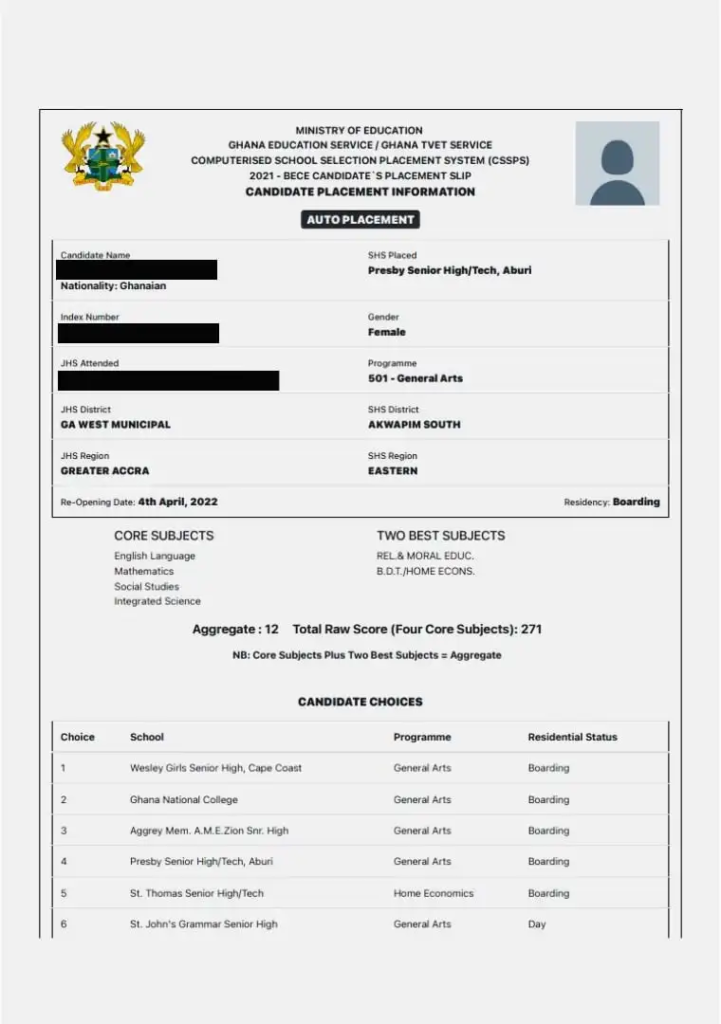
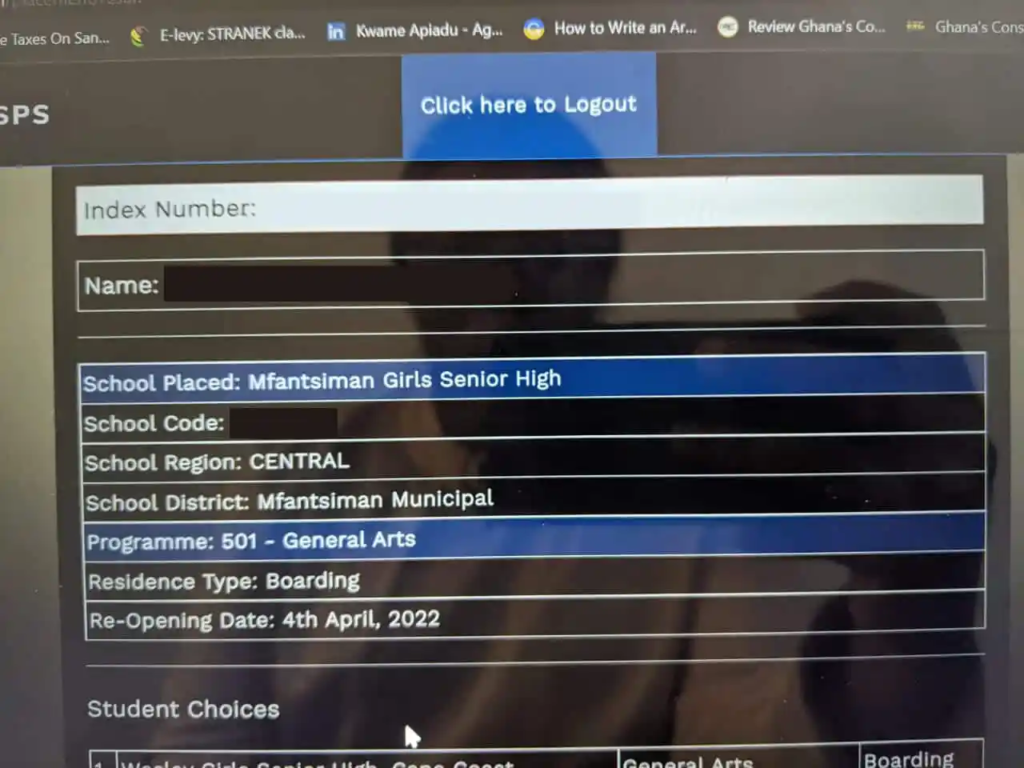
In all, Eric and his network demanded and took GH₵ 19,500 for placing two candidates at Aggrey Memorial and Mfantsiman Girls, both in the Central Region.
A rejection, GH₵ 5000, and the demand for higher fees
While the changes were ongoing, another network of security personnel was also engaging in other deals to get students placed in their schools of choice. We met Emmanuel Sowatey and Kaba Navaro, both security personnel stationed at the main entrance to the GNAT Hall.
Seated in Kaba’s small office, was a middle-aged woman, who was there to change her ward’s placement.
When we presented the placement slip of a student who wanted placement at Apam Senior High School, Kaba with confirmation from Emmanuel charged GH₵ 4,000 to secure placement at the category B Apam Senior High School in the Central Region.
He listed the successes he had chalked since the placement portal was opened for the selection of schools to assure the reporter of his capabilities.
A few minutes later, Kaba forwarded the student’s documents through WhatsApp, to one Alex, who he said works at the CSSPS in Accra.
Subsequently, Kaba introduced the reporter to Eric after his failure to place the student.
Eric showed us all the vacancies available in the category ‘A’ schools to prove that he could help with the placement.
While going through the schools, we told Eric we could only raise GH¢5,000, leaving GH¢3,500 shy of the GH¢8,500 he demanded.
We wanted the candidate to be placed at Archbishop Porter Girls in Takoradi. Eric said it would come at a cost.
He said we had to part ways with GH₵ 8,500 each to have placement in the school.
With a phone in one hand and another itchy-empty palm, Eric took the brown envelope containing GH¢5,000.
When Eric counted the money he had demanded from The Fourth Estate reporter, he remarked, “your money is small and she [ Rachel] will not accept it.”
“Just this morning, I changed someone’s placement for her, “Eric tooted his own horn.
He said he was ready to effect the change but our GH¢5,000 was too small to cause the seismic change from Presbyterian Senior High Technical School, Aburi to Aburi Girls in the Eastern Region, Mfantsiman Girls in the Central Region, or Archbishop Porter Girls in Takoradi, Western Region.
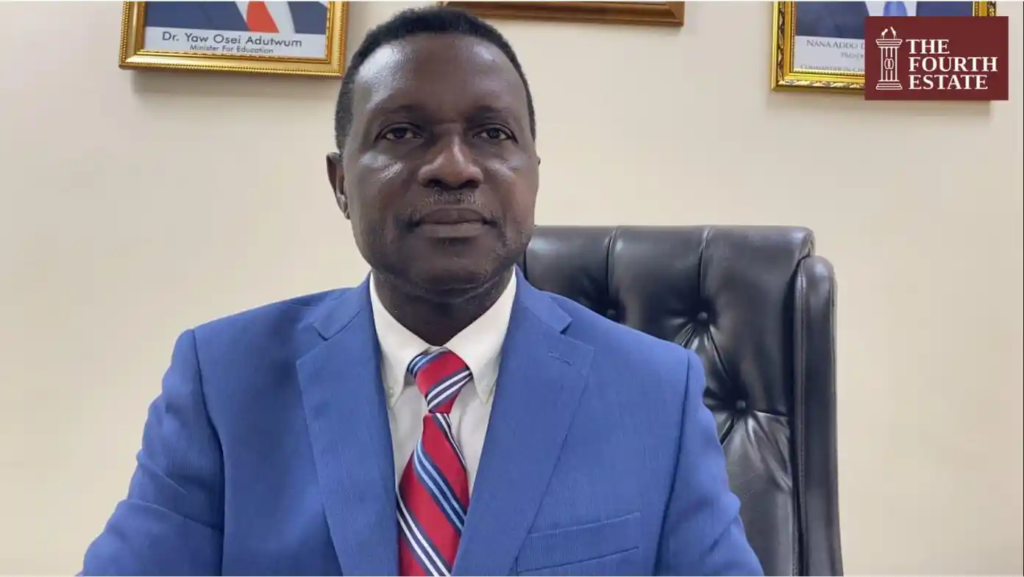
According to the Education Minister, the protocol list is what some unscrupulous people sell to those who want their wards placed in high-category schools.
“For example, headmaster’s protocols, we don’t question where those children are coming from. All that we do is approve it when they upload it on their portal”.
A former coordinator of the CSSPS, Dr George Atta Boateng says the protocol system used to be a 30 per cent quota for communities within the catchment area of the school.
That system has now been changed. The protocol system of placing candidates is now 10 per cent, which is shared equally between the Ministry of Education and the Schools.
This means people like Rachel who are able to place students either have links to the ministry or the schools. We could not get evidence of her links to the schools, but we established she had links to the Ministry of Education. She was in charge of the canteen at the Ministry of Education, until the canteen was shut down for refurbishment. Our sources at the ministry of education also say Rachel constantly called some of them asking for placement vacancies.
Whatever her source of vacancy was, only two persons had the passwords for placement into category A schools.
Only two persons have password to category A schools
Although the minister said GES Director-General’s office and the Education Ministry had access to Category A schools, our checks revealed that full access to such protocol placement was limited to only two individuals.
“In reality, we have two; the Director-General’s office and the Ministry of Education. Last year, those are the two people with access.
“If only two people have access to category A schools, you are able to tell who did the placement for a certain student so if these allegations that a parent has paid money, and this student has found himself in this school, you go into the system IT people are able to tell which of the two people did the placement so it becomes much easier. And you know this is the area where people are scamming parents because they are the most desirable schools,” the minister said.
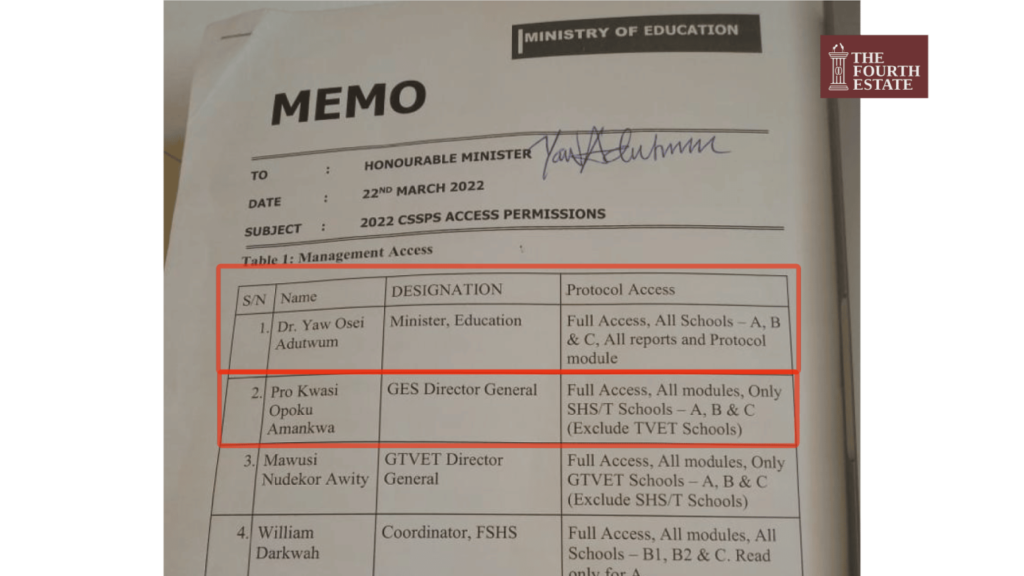
A memo that was circulated within the Ministry of Education on the 2022 placement shows that only the Director-General of the GES, Prof. Kwasi Opoku-Amankwa, and the Education Minister, Dr Yaw Osei Adutwum, had full access to the most sought-after category A schools. This means the placement made by Rachel into Mfantsiman Girls had to be approved by either the minister or the GES Director-General.
Prof Opoku-Amankwa, however, told The Fourth Estate that just a week after placement had commenced in 2022, his access to the backend of the placement system was revoked.
“In 2021, initially, I had access, but my access was revoked for a period to ensure that some updates were done and when it was restored, the opportunities were taken away,” he said.
“For 2022, I only had access to the backend and the opportunity to do changes and to see whatever was going on in the system for just about the first week of the placement. Subsequently, my access was blocked,” he added.
Prof Opoku-Amankwa requests for investigations and obstacles
During the 2022 placement process, Professor Opoku-Amankwa, who was unhappy about corruption in the placement, wrote to the National Intelligence Bureau and the Criminal Investigations Department of the Ghana Police Service to investigate allegations of corruption in the placement process. Part of his letter to the two-state security agencies reads:
“In some instances, fingers have been pointed at top officials of the Ministry of Education, Ghana Education Service/Computerised School Selection and Placement System and the Free SHS Secretariat. Management of Ghana Education Education Service will be grateful if your office could launch a full-scale investigation into these allegations to establish their authenticity or otherwise.”

The Fourth Estate understands that the NIB initially agreed and started the investigation, but exactly one month later, it wrote to the GES asking: “You may redirect your request to the Director-General of the Criminal Investigations Department of the Ghana Police Service for the necessary action.”

The GES had already also petitioned the police CID the same day it wrote to the NIB.
When asked about the progress of investigations, the minister of education said he did not have any data to speak to the issue immediately but said the security agencies were working on it.
Prof Opoku-Amankwa said aside from the first day he was interviewed by the CID as part of the investigations, the probe into the school placement fraud did not progress any further.
“The NIB responded first,” he told The Fourth Estate. “They brought a gentleman, Francis, and his team to start investigations on the system, but somewhere along the line, they pulled out of the investigations and then exactly a month after my letter, they sent me a note to indicate that I should rather refer the issue to the CID. Two weeks later, the CID also came in with the team to start their investigations. They did the entry interview with me and that was where it ended.”
The Fourth Estate sources say these investigations were stopped by “powers from above.”
Prof. Opoku-Amankwa could not pursue this matter to the end. He was removed from office that same year.

When The Fourth Estate concluded our investigations and wanted the police involved in arresting the perpetrators, the CID headquarters agreed to work with us. A team from the Financial Forensic Unit was assigned to work with us. But there was a sudden withdrawal of the team and we were directed to report the matter to the Ministries Police Station.
The minister and I should take responsibility
Prof Poku-Amankwa said he and the Education Minister, Dr Yaw Osei Adutwum, should be held responsible in the case of any fraud associated with the placement of students into senior high schools.
“If there is fraud in the matter, then I, as the Director-General, and the Minister should take responsibility. I fully accept and agree, but I knew that I was part of it and I wanted to actually make sure that there were no challenges with it. I took measures to ensure that the issues relating to corruption and payment of money have been dealt with and I wrote to the CID and BNI.”
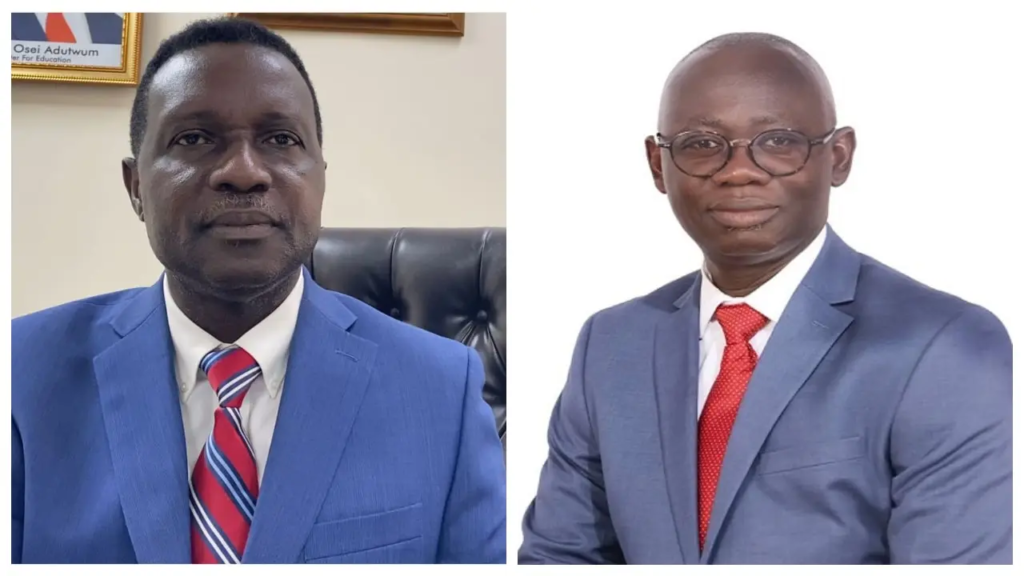
The arrest of the computerised school placement fraudsters
In all, the police have arrested eight suspects in connection with the school placement fraud uncovered by The Fourth Estate. None of them is from the Education Ministry, GES or the FREE SHS Secretariat as mentioned in Professor Opoku-Amankwa’s letters to the CID and NIB. It is also evident that Rachel could not have placed a student into Mfantsiman Girls without the approval of the Minister of Education or the Director-General of the Ghana Education Service, the only two individuals with passwords to Category A schools.
How the names of students got to the Education Minister or the GES Director-General for placement into category A school is easy to find, according to the Minister’s explanation. It is, however, not clear if the police will follow this case to the top since there is evidence that the top hierarchy of the security agencies failed to investigate the matter when the GES Director-General requested the investigation.
Eight suspects face prosecution
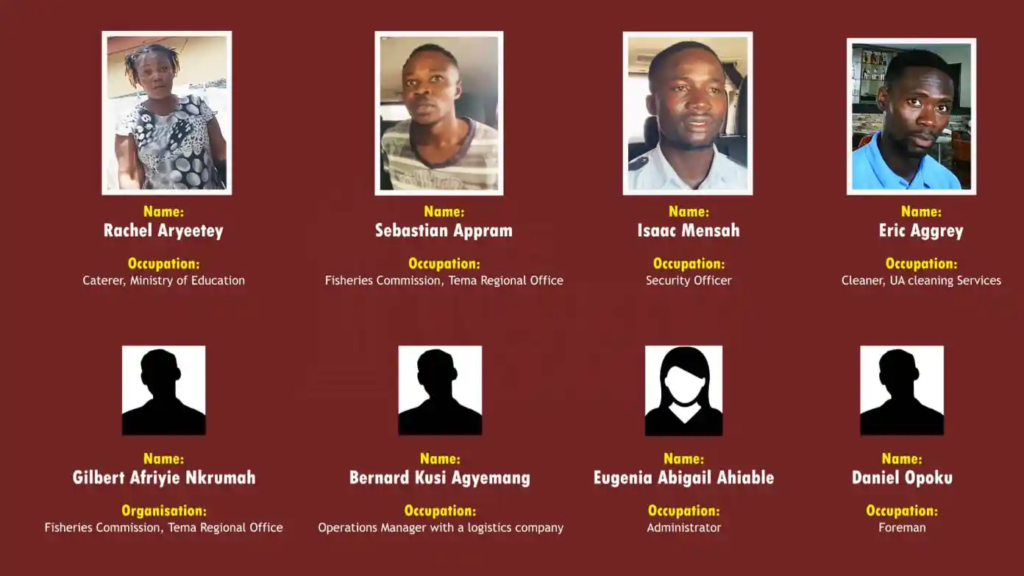
Eric shook his head in the courtroom and stamped his feet while casting a menacing look at The Fourth Estateteam members present in court. Eric Aggrey, 36, had been behind bars for four days.
Eric and Rachel were arrested at Awoshie Busia by policemen from the Accra Central Police Station after we presented the evidence gathered.
We had lured Eric to Rachel’s house for their “reward” for changing placement for the two students when the police arrested them. Rachel shouted “Jesus” while Eric was seated and uttered no words until he was handcuffed.
When we asked Eric what his role was in the placement, he said he had helped in the placement of the two students. He confessed to taking money from some people and helped to change the placement. He also admitted to receiving a list of vacancies at schools from Rachel.
Rachel also admitted and mentioned another person, a private security guard at a basic school opposite her house as the facilitator for everyone she had assisted to get placement changed.
Rachel said the security guard, called Isaac Mensah, also gave the money he collected to his friend whom she (Rachel) had never met. Isaac was arrested by the police to assist with investigations.
Isaac told the team about his role in the placement process and later mentioned the name of another person, Sebastian, also known as Thriller.
Sebastian Appram,28, was subsequently arrested.
Gilbert Afriyie Nkrumah, 23, a member of the syndicate who works at the Fisheries Commission, Tema regional office, was invited to the Accra Central Police station and was subsequently arrested on October 28, 2022.
Two suspects on the run
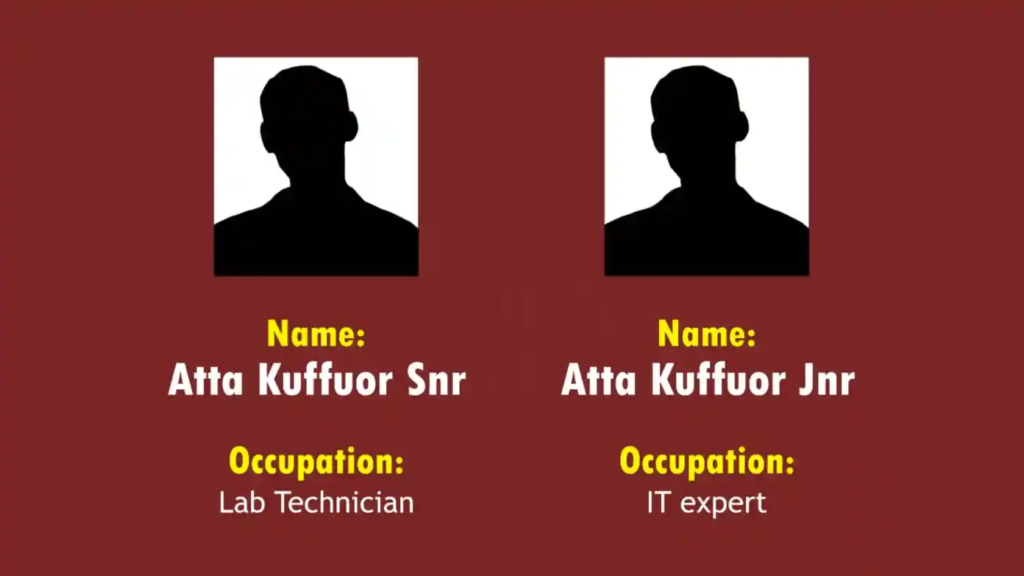
Three other members have been arrested: Bernard Kusi Agyemang, an operations Manager with a logistics company; Eugenia Abigail Ahiable, an administrator and Daniel Opoku, a foreman. Daniel Opoku also named twin brothers, Atta Kuffuor Senior, a Lab Technician and Atta Kuffuor Junior, an IT expert as the ones who finally effected the placement to Mfantsiman. The twins were already on the run for a similar offence, Daniel Opoku told the Police in his statement.
The court granted four of the members a GH¢30,000 bail with three sureties.
Chief Inspector Benneh, who is the state prosecutor, read the charges out and said though the suspects were not public servants, they have conspired with a public servant who used his/her office for private gains.
“Using public office for profit [ inserted by act 458, sec 3] contrary to section 179C [B] of the criminal offences act 1960[Act 29],” the charge read.
The court granted all eight of them GH¢80,000 bail each, with 3 sureties.
Background of Computerised School Placement System
The Ministry of Education introduced the Computerised School Placement System in 2005 to eliminate corruption in the placement process into Senior High Schools across the country.
It was also to promote efficiency, fairness, and transparency and speed up the placement process.
This process was also introduced to make education accessible to all according to Article 25 clause 1(b) of the 1992 constitution which states that “secondary education in its different forms, including technical and vocational education, shall be made generally available and accessible to all by every appropriate means.”
“Heads of school usually hold regional conferences where they select the students based on their grades. But there was this controversial issue as to how we could be so sure about two students who obtained grade six. If you and I obtain grade 6, and we all choose to do science at Prempeh College, then it means Prempeh has to choose one if they only need one student.
In this case which one would you choose because the grades are the same?”
Seventeen years after its introduction, however, corruption continues to eat away the integrity of the system, enabling those who can afford to pay huge amounts to get access to the choicest of schools.
Those who are paid to resolve the problem have become the problem as The Fourth Estate found during its investigations.
Some heads of Senior High Schools report constant fluctuations in admission numbers as a yearly occurrence.
At the Wesley Girls Senior High School, for instance, a source told The Fourth Estate that the numbers were no different from the previous years when the government was using the double track system. However, the science classes which were usually 14 had increased to 15 classes.
At Mfantsipim Senior High School, the school had enrolled 1100 first-year students in 2021 for both tracks but in the 2022 single track, the number had increased to 1406. This compelled school authorities to increase the number of science classes from 14-17.
The number of classes for the General Arts programme had also gone up by two.
The treasurer for the Conference of Heads of Assisted Secondary Schools (CHASS), Emmanuel Fiemawhle, told The Fourth Estate that there was a need to have a review of the current CSSPS to ease the burden on heads of Senior High Schools.
The Executive Director of the education think-tank, Africa Education Watch, Kofi Asare chastised the Ministry of Education for the role it continues to play in fueling the challenges and called for a more transparent placement system.
“The point we have gotten to now is worse than 15 years ago when headmasters were doing admissions. The reason we brought in CSSPS was that many headmasters had become corrupt. It was a gold mine for admissions, and we wanted to end that system and bring in a much more meritorious and equitable system that all citizens could trust.
“But we have gotten to the point where the essence to end the old so-called corrupt system has been defeated. The current one is without a doubt more corrupt than the previous one and people are not too happy but the few are happy because they are able to pay ¢10,000, ¢15,000 for placement etc.”
Latest Stories
-
MELPWU signs first-ever Collective Agreement with government
9 mins -
I’ve not been evicted from my home – Tema Central MP refutes ‘unfounded’ reports
11 mins -
After Free SHS, what next? – Alan quizzes and pledges review to empower graduates
41 mins -
Wontumi FM’s Oheneba Asiedu granted bail
51 mins -
Alan promises to amend the Constitution to limit presidential powers
1 hour -
Ghana to face liquidity pressures in 2025, 2026 despite restructuring most of its debt – Fitch
1 hour -
NPP’s record of delivering on promises is unmatched – Bawumia
1 hour -
Mahama: It’s time to dismiss the incompetent NPP government
1 hour -
Today’s front pages: Monday, November 25, 2024
2 hours -
T-bill auction: Government misses target again; interest rates continue to rise
2 hours -
We have a bad technical team; Otto Addo and his team should go – Ernest Thompson
3 hours -
Hindsight: Why Accra Lions’ present problems do not define them
3 hours -
10-year-old Lisa Laryea arrives at Wits Donald Gordon Hospital in South Africa for bone marrow transplant
4 hours -
23 ambassadors inducted to take on 2025 GSTEP Challenge in three regions
4 hours -
Ghana Shea Workers Union inaugurated
4 hours

